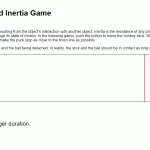Share this
Fear of failure is intimidating – for us, and especially so for our children. The mere thought of our little ones struggling, feeling frustrated, or succumbing to feelings of defeat often sends us, as parents, into a protective frenzy. Yet, it’s essential to hold back that instinct to shelter them from failure. The truth is, failures, missteps and stumbling blocks play a pivotal role in shaping our children’s development, fostering resilience, and facilitating profound learning experiences.
In the heart of this article, we will debunk the misconception of failure being an obstacle. Instead, we will explore how we can leverage failure as a powerful, informative tool in our children’s educational journey.
Cracking Open The Learning Opportunity Within Failure

Think about a time when your child may have made a mistake or failed at something. This isn’t a bad thing! In fact, these missteps are crucial stepping stones in their life journey towards growth and learning. These setbacks make them realize that achieving success isn’t easy, it won’t just be handed to them. Children need to understand that success is often the end result of a journey filled with ups and downs, hard work, commitment to keep going, and the ability to bounce back from difficulties.
For example, think about your child working on a science project for school. Let’s say they try their best but it doesn’t work out – they fail. However, this failure is an opportunity for them to learn. They can figure out what went wrong, come up with new strategies to solve the problem, work on their project again with this new approach, and then finally, they succeed! That feeling of victory, after overcoming every hardship, is truly unbeatable.
Life is unpredictable and full of challenges, and these small failures prepare our kids for all that. It equips them with the skills to handle the curveballs life may throw their way with strength and finesse. Every small failure they encounter is a guide to steer them through their life journey, allowing them to grow, learn, and become resilient individuals.
Failure: The Master Teacher Of Problem-Solving Skills
Failure is like a very important secret ingredient needed for children to learn how to solve problems. Let’s take an example to understand this better. Say, a child is playing a soccer match and their team loses. Or perhaps, they’re trying to solve a really tough math problem and they just can’t seem to get the correct answer. These failures can be really frustrating, but they play a massive role in helping the child learn problem-solving skills.
What happens here is, when they lose or get something wrong, they’re naturally motivated to try and figure out where they went wrong. They start wondering why their soccer team lost the match or why they can’t figure out the correct answer to the math problem. They’re curious about what went wrong and how they can make it right the next time.
And this is where the magical process begins. This curiosity pushes the child to start experimenting with different ways to solve the problem – whether it’s trying out a new strategy in the next soccer match or using a different method to solve the same math problem. They don’t stop until they find an approach that works.
While all this is happening, the child also learns to think quickly and make fast decisions. They start to become more thorough and careful in how they think about problems and how they go about solving them. They don’t just stick to solving a problem in one way, rather they become more flexible and come up with different ways to tackle the same problem. All of this helps the child develop strong problem-solving skills that’ll be very useful in the long run.
Resilience: The Silver Lining Of Failures

Failure, although it can initially seem harsh, can actually teach young people a really important lesson on being strong, or as we often refer to it, resilience. Resilience is like a bouncing ball. Even when it’s thrown hard on to the ground, it springs back up. It’s all about being able to return to your normal self after going through a tough time. Just like the ball, it’s about not staying down when life knocks you down but bouncing right back up.
When a child fails at something, maybe they don’t make the basketball team or they get a bad grade on a test, it can be seen as an opportunity. It allows them to learn how to pick themselves up, to learn from their mistakes, and keep moving forward. Just like a marathon runner who trips and stumbles but still gets up and keeps on running, no matter how many falls they have.
Building up this bouncing-back ability at a young age can really equip them with strength to handle future problems. Imagine having a suit of armor – that’s what resilience is like! It helps protect you from the inevitable difficulties that life will throw upon you. It prepares them for the real-world, helps them become successful adults, and endure any challenges that they might face in the future.
Failure: An Unrivalled Teacher In Life’s Classroom
As parents, we have a crucial role to play in helping our children learn valuable lessons from failure. Here are a few practical ways in which you can redefine failure and leverage it as a tool for personal development:
- Encourage Fearless Exploration: Motivate your child to take risks and explore new territories, be it hobbies, sports, or subjects in school. When they aren’t shackled by the fear of failure, the window of opportunity for learning and personal growth opens wider.
- Validation Counts: Be there for your kids when they falter. Validate their feelings of disappointment. It is crucial for them to understand that it’s entirely normal to feel upset when things don’t go their way.
- Learning, Not Lamenting: Teach them to process failure not as a setback, but as an opportunity to learn and improve. Help them to focus not on the negative aspect, but on what can be done better next time.
- Each Mistake, One Step Closer: Educate your child to see each failure as a stepping stone taking them closer to their goal. Let them know the journey to success isn’t linear, and even the most successful people have experienced their fair share of failures.
In the long run, wrapping children in a protective bubble does them a great disservice. Instead of learning from their own mistakes, they become dependent and possibly fearful of ever stepping out of their comfort zones. Remember, mistakes and failures are inevitable and universally human traits. Through these, we adapt, we grow, and we mature.
So, let’s flip our perspective and embrace failure. Instead of viewing it as a foe, let’s welcome it as a teacher, a guide, a friend. It is time we acknowledge that failure, in all its glory, indeed holds the master key to unlocking our children’s potential for success, resilience, and personal growth.
Richard Zhang, M.Ed., is an educator and a software developer with a Masters degree in education from University of Toronto and an immense passion for education and learning. Until the pandemic, Richard owned an award-winning learning centre in Toronto. For 15 years, he has taught and mentored hundreds of elementary, middle school, and high school students succeed in academics. He is also an app developer specializing in web and mobile application in educational and business sectors.











